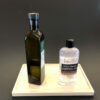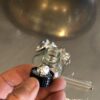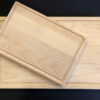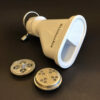For treating wooden cutting boards, in our dietary intervention lab/kitchen, we used olive oil packaged in glass from a local supplier who has minimal plastic components in their oil-making mill. While some food sources suggest that vegetable-based oils will somehow turn rancid in contact with water, we found no evidence of this. This ad-free article […]








